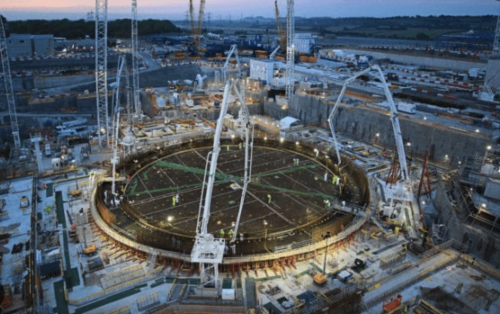Hinkley Point could be delayed three years as costs soar by a third

The Hinkley Point nuclear plant could be delayed by three years amid concerns over soaring costs.
Bosses at French owned EDG have confirmed costs at Europe’s biggest construction project have risen by a third to £46bn.
The Somerset plant was due to be built by 2027 at a cost of around £34bn.
The project is one of the biggest in the region and has led to the creation of thousands of jobs in the South West.
The company has blamed inflation, rising costs and Brexit for the problems surrounding the mammoth project.
Once Hinkley C is complete, it is expected to generate enough electricity to supply some six million homes, for the next 60 years.
In a letter to staff Stuart Crooks, the managing director of Hinkley Point C, said there were 7,000 substantial design changes required by British regulations that needed to be made to the site.
“Going first to restart the nuclear construction industry in Britain after a 20-year pause has been hard,” Mr Crooks said.
“Like other major infrastructure projects, we have found civil construction slower than we hoped and faced inflation, labour and material shortages, on top of Covid and Brexit disruption.”
“It is important to say that British consumers or taxpayers won’t pay a penny, with the increased costs met entirely by shareholders.”
Tom Greatrex, chief executive of the Nuclear Industry Association, the industry trade body in the UK, said: “Hinkley Point C is an integral part of the UK’s route to energy security and decarbonisation.
“What is important now is that we act with pace and scale alongside other clean energy technologies as we shift towards a net-zero future.”
A spokesperson for the Department for Energy Security and Net Zero said: “We’ve ended the stop-start approach to nuclear and recently launched a roadmap setting out the biggest expansion of nuclear in 70 years, simplifying regulation and shortening the process for building new power stations – meaning cleaner, cheaper and more secure energy in the long-term.”









